The Future of SaaS: Trends and Insights

“The Future of SaaS: Trends and Insights” is an article that provides a comprehensive overview of the Software as a Service (SaaS) industry and offers valuable insights into its future trajectory. This article covers various topics such as business, economy, marketing, technology, and SaaS founders. It explores the importance of recurring revenue in the SaaS model, the role of pricing in SaaS companies, and the impact of automated payments on reducing customer churn. Additionally, it delves into the concept of a leaner SaaS organization and the growing trend of empowered end-users. By examining these trends and insights, this article aims to equip readers with a deeper understanding of the SaaS industry and its potential for growth and stability.
Trends in SaaS

Increasing Adoption of Cloud-based Solutions
The adoption of cloud-based solutions in the software-as-a-service (SaaS) industry has been steadily increasing over the years. Cloud-based SaaS solutions offer numerous benefits, including scalability, cost-efficiency, and ease of access. With cloud-based solutions, businesses can easily scale their software usage based on their needs, while also reducing the costs associated with on-premises hardware and maintenance.
Additionally, cloud-based SaaS solutions allow for easy access to software applications from any device with an internet connection, making it convenient for businesses and individuals to use and access their software on the go.
Emergence of Vertical SaaS
Another trend in the SaaS industry is the emergence of vertical SaaS solutions. Vertical SaaS refers to software solutions that are specifically designed for a particular industry or niche. These solutions are tailored to address the specific needs and pain points of businesses in a particular industry, allowing for more efficient and targeted software usage.
Vertical SaaS solutions offer industry-specific features and functionalities, which can greatly improve the productivity and effectiveness of businesses operating in that industry. This trend highlights the growing demand for specialized software solutions that cater to the unique requirements of different industries.
Integration of Artificial Intelligence and Machine Learning
Artificial intelligence (AI) and machine learning (ML) have been making significant advancements in recent years, and their integration into SaaS solutions is becoming increasingly common. AI and ML technologies can help automate processes, analyze large datasets, and provide intelligent insights to businesses.
SaaS solutions integrated with AI and ML can offer enhanced capabilities such as predictive analytics, natural language processing, and intelligent automation. These technologies can greatly improve the efficiency and accuracy of various business processes, allowing for smarter decision-making and increased productivity.

Subscription-based Pricing Models
Subscription-based pricing models have become the norm in the SaaS industry. Instead of purchasing software licenses upfront, businesses can now subscribe to SaaS solutions and pay a recurring fee for continuous access to the software. This allows for better cost predictability and flexibility for businesses, as they can scale their software usage up or down based on their needs.
Subscription-based pricing models also incentivize SaaS providers to continuously improve their software and provide ongoing support to their customers. This trend has contributed to the widespread adoption of SaaS solutions across industries.
Shift Towards Mobile-Friendly SaaS Platforms
With the increasing use of mobile devices, there has been a shift towards mobile-friendly SaaS platforms. Businesses and individuals are expecting seamless access to their software applications from their smartphones and tablets. This has led SaaS providers to prioritize mobile optimization and develop responsive and user-friendly interfaces for their applications.
Mobile-friendly SaaS platforms allow for greater flexibility and convenience, as users can access their software on the go, regardless of their location. This trend reflects the growing importance of mobile technology and the need for software solutions that cater to the mobile-first mindset of users.
Impact of COVID-19 on SaaS
Accelerated Digital Transformation
The COVID-19 pandemic has accelerated the digital transformation of businesses across industries. The need for remote work and social distancing measures has forced companies to reassess their operations and adopt digital solutions to ensure business continuity.
As a result, the demand for SaaS solutions has surged, as businesses seek cloud-based software that can be accessed remotely by their employees. SaaS providers have played a crucial role in enabling companies to transition smoothly to remote work and maintain productivity during these challenging times.

Increased Demand for Remote Collaboration Tools
The shift to remote work has highlighted the importance of remote collaboration tools in maintaining effective communication and collaboration among teams. Video conferencing, project management, and team collaboration tools have become essential for businesses to ensure seamless collaboration and productivity in a remote work environment.
SaaS providers offering remote collaboration tools have experienced significant growth during the pandemic, as businesses rely on these tools to facilitate virtual meetings, file sharing, and real-time collaboration. The increased demand for remote collaboration tools is expected to continue even after the pandemic, as companies embrace hybrid work models and prioritize flexibility.
Growing Importance of Cybersecurity in SaaS
The increased reliance on SaaS solutions has also brought about a growing concern for cybersecurity. With sensitive data being stored and accessed in the cloud, businesses must prioritize the security of their SaaS applications and data.
SaaS providers have been investing in robust security measures to protect customer data and prevent security breaches. This includes implementing encryption, multi-factor authentication, and regular security audits. Additionally, businesses are increasingly focusing on employee education and training to ensure cybersecurity best practices are followed.
Future of SaaS Startups
Rise of Niche SaaS Solutions
As the SaaS market continues to mature, there is a growing trend towards the rise of niche SaaS solutions. Niche SaaS solutions are targeted towards specific industries or business functions, offering specialized features and functionalities tailored to meet the unique needs of those markets.
By focusing on niche markets, SaaS startups can differentiate themselves from larger competitors and provide specialized solutions that address specific pain points. The rise of niche SaaS solutions allows businesses to benefit from software that is specifically designed to meet their industry requirements, leading to increased efficiency and productivity.
Focus on Customer Retention and Churn Reduction
In a competitive SaaS landscape, customer retention and churn reduction have become critical for the success and growth of SaaS startups. Retaining existing customers and reducing churn is not only cost-effective but also contributes to long-term revenue growth.
SaaS startups are increasingly investing in customer success and support teams to ensure customer satisfaction and minimize churn. They are also leveraging data analytics and customer feedback to identify potential issues and proactively address them, enhancing the overall customer experience.
Evolution of Hybrid SaaS Models
Hybrid SaaS models are gaining traction in the industry, combining elements of both on-premises and cloud-based solutions. Hybrid SaaS allows businesses to leverage the benefits of both models, such as maintaining sensitive data on-premises while utilizing cloud-based applications for scalability and flexibility.
SaaS startups are innovating and developing hybrid solutions that cater to the specific needs and preferences of businesses. This evolution of hybrid SaaS models offers businesses greater flexibility in how they deploy and manage their software solutions, depending on their unique requirements.
Importance of Data Analytics and Business Intelligence
SaaS startups are recognizing the value of data analytics and business intelligence in driving growth and providing insights to their customers. By leveraging data generated by their software applications, SaaS startups can offer valuable analytics and reporting features that help businesses make informed decisions.
Data analytics and business intelligence capabilities enable businesses to gain visibility into key metrics, identify trends, and uncover opportunities for improvement. SaaS startups that prioritize data analytics and business intelligence are well-positioned to provide added value to their customers and differentiate themselves in the market.
Enhanced Integration Capabilities
As businesses continue to adopt multiple SaaS solutions to meet their needs, the importance of seamless integration between different applications is on the rise. SaaS startups are recognizing the need to provide enhanced integration capabilities that allow their software applications to seamlessly connect and exchange data with other systems.
By offering robust integration capabilities, SaaS startups can improve their customers’ workflow and productivity by eliminating manual data entry and ensuring data consistency across applications. Enhanced integration capabilities also contribute to a better user experience and increased customer satisfaction.






